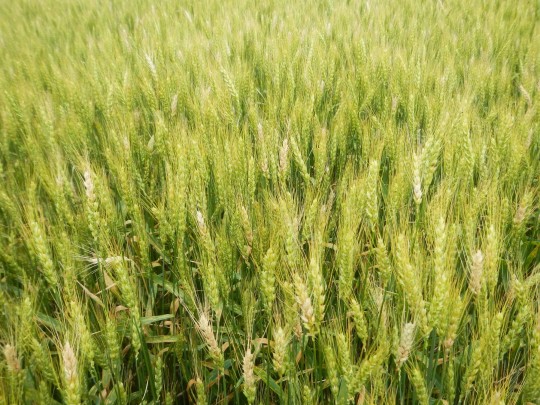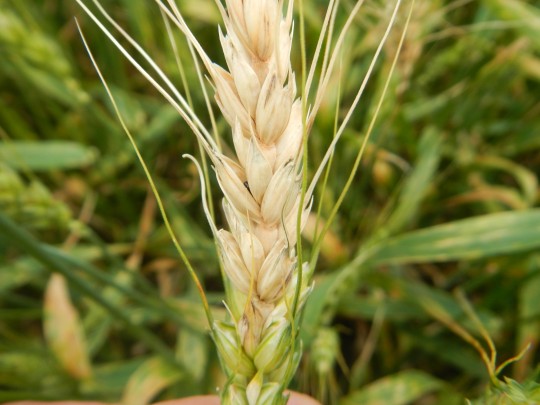Wheat scab rearing its ugly “head”
Head scab of wheat (a.k.a. Fusarium head blight) is showing up in Illinois wheat fields. Incidence is ranging from low (less than 10% of the heads affected) to moderately high (over 25% of the heads affected). Affected wheat heads will appear “bleached” in color. Heads often are partially affected, with both healthy green and affected bleached areas being present in the same head. Although I have not been in all wheat production areas in the state, my general observations are that fields in southern Illinois (south of Interstate 70) range from low to moderate incidence of scab, while fields in central Illinois seem to have moderate to high incidence of scab (it may be a little too early to see scab in northern Illinois fields currently). These differences in scab incidence from field to field likely are due to differences in susceptibility of the varieties planted, application or no application of fungicides, and local weather.


Wheat growers may want to evaluate the level of scab in their fields. It is easiest to observe this disease before heads completely mature. Growers with moderate to high levels of scab should consider making adjustments to their combine that would allow low test-weight, scabby kernels to be blown out the back of the combine. Recent research conducted at the Ohio State University indicated that adjusting the combine’s fan speed between 1,375 and 1,475 rpm and shutter opening to 90 mm resulted in the lowest discounts that would have been received at the elevator due to low test weight, % damaged kernels, and level of the mycotoxin deoxynivalenol (DON; vomitoxin) present in the harvested grain (Salgado et al., 2011).
Reference:





